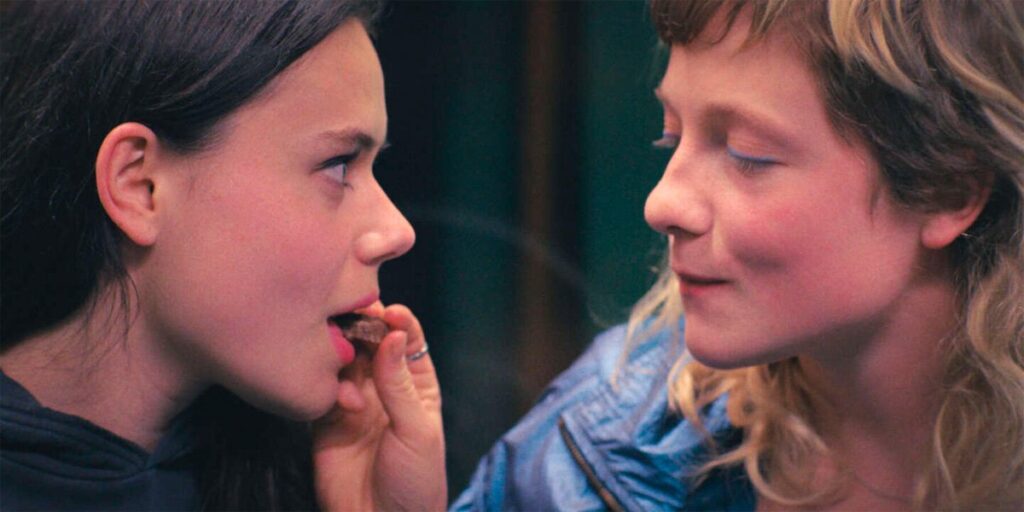Berlinale 2024: A Story of Romance and Politics in ‘Langue Étrangère’

Berlinale 2024: A Story of Romance and Politics in ‘Langue Étrangère’
by Alex Billington
February 28, 2024
Another film about the young generations of today and their fervent involvement in politics. They’re a dime a dozen nowadays. Does this one have anything unique or compelling to say? I’m always curious to find out, though way too many films these days often misunderstand what’s going on out there and how politics are getting worse. They also often misunderstand why there are so many kids riled up to go protest, speak out about politics, and fight back as radical activists. I’m a bit worried that is the case with this new film, too… Langue Étrangère is a French-German co-production directed by the French filmmaker Claire Burger (following Party Girl and Real Love), premiering at the 2024 Berlin Film Festival in the Main Competition. It’s not a bad film, with some intriguing performances, though far from being a great film. It’s also a lesbian romance about two young women who begin developing feelings for each other. One of the film’s problems is it can’t settle on which side of this story to focus on, instead mixing the two themes to a lackluster result.
Langue Étrangère (which translates directly to Foreign Language) has a double meaning, as it’s about the characters speaking different languages (German and French) but also about how their interest in politics and youthful spunk are a “foreign language” to their parents. The film is co-written by Claire Burger and Léa Mysius, and directed by Claire Burger. The story focuses on Fanny (starring Lilith Grasmug), an anxious and depressed young French woman who heads to Germany for a language exchange trip. There she meets another high schooler named Lena (co-starring Josefa Heinsius), an extremely confident young German woman who is an outspoken feminist, activist, lesbian, and everything else progressive. The two are odds at first, but as they warm up to each other, learn to speak each other’s language, they start to fall for each other as they get closer & closer. All the while conversing about politics, protests, modern European society, and high school life. There’s a subplot about identity and the lengths some will go to deal with their insecurities, but it’s a bit undercooked and not handled well in the screenplay or by the director. The film allows time for their relationship to grow, but only briefly, as it’s a breezy French drama that doesn’t dig deeply into much.
The more I reflect on Langue Étrangère, the more confused I am by what it’s saying, its main idea hidden within the script. The director is much older than the two young characters at the center of the story, and she doesn’t quite seem to actually understand them properly. It seems to be obvious in what it’s trying to do with these two characters, trying to say this is how youth these days build their identity – sometimes they fake it, sometimes not… But it also seems inauthentic in how it portrays them, as if they’re just fabricating idealistic causes and identities as part of a façade, as if everything they’re caring about isn’t really worth it and/or is exaggerated. That’s not at all the case and it just doesn’t seem to understand that. Strangely. After watching, I’m left wondering if it’s mocking the youth of today, saying they’re so obsessed with these issues just to impress their peers, not actually understanding what they’re really fighting for. Which, again, is not the truth. Is this a misunderstanding within the script, or is the film itself not fully capable of clarifying its intentions well enough? Hard to tell. Whatever the case, this film isn’t as compelling as it’s attempting to be.
Alex’s Berlinale 2024 Rating: 6 out of 10
Follow Alex on Twitter – @firstshowing / Or Letterboxd – @firstshowing





